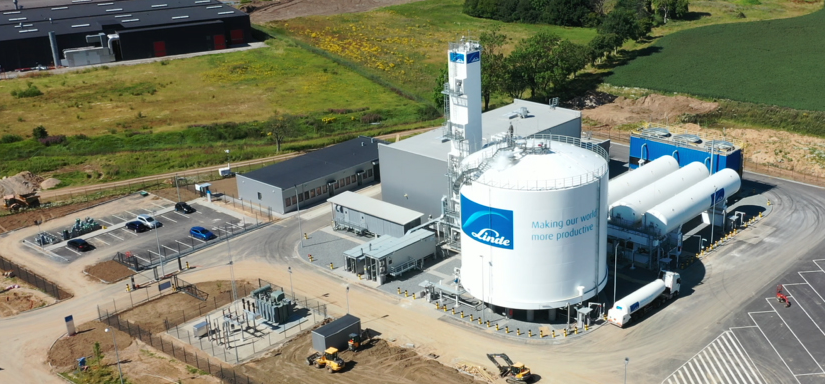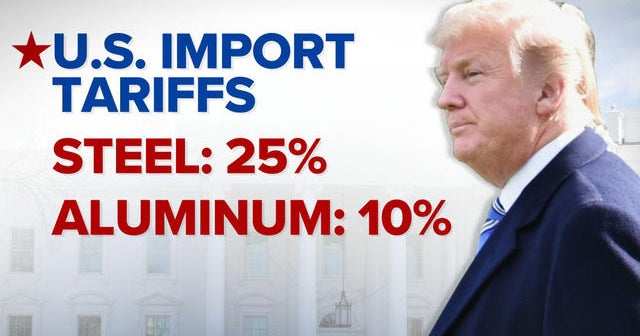South Africa And Tanzania Discuss Lifting Of Agricultural Import Ban

Table of Contents
H2: Current State of the Agricultural Import Ban
Tanzania's agricultural import ban, in place for several years, stems from a desire to protect its domestic agricultural sector and ensure food self-sufficiency. The ban primarily restricts the importation of various agricultural products, impacting both small-scale and large-scale farmers. Specific products affected include crucial staples like maize, wheat, and dairy products, alongside other important agricultural commodities.
The impact of this ban has been multifaceted. South African exporters have faced reduced market access, leading to decreased revenue and potential job losses within the South African agricultural industry. Simultaneously, Tanzanian consumers have experienced higher food prices due to reduced supply and limited competition. This has hindered agricultural diversification within Tanzania, limiting the range of food available to consumers. Furthermore, the ban has contributed to potential increased food insecurity, particularly within vulnerable populations.
- Reduced market access for South African farmers, affecting their profitability and livelihoods.
- Higher food prices for Tanzanian consumers, disproportionately impacting low-income households.
- Limited agricultural diversification in Tanzania, hindering economic growth and food security.
- Potential for increased food insecurity in Tanzania, especially during periods of drought or poor harvests.
H2: Arguments for Lifting the Ban
The potential benefits of lifting the agricultural import ban are substantial for both countries. For South Africa, it represents a significant expansion of export markets, stimulating economic growth and supporting its agricultural sector. For Tanzania, it promises increased competition, potentially leading to lower prices for consumers and a wider variety of agricultural products.
Opening the market could also foster agricultural technology transfer and the adoption of improved farming practices in Tanzania, boosting productivity and efficiency within its agricultural sector. South African expertise in areas like irrigation, crop management, and post-harvest handling could significantly benefit Tanzanian farmers.
- Enhanced trade relations between South Africa and Tanzania, strengthening bilateral ties.
- Stimulated economic growth through increased exports (South Africa) and imports (Tanzania).
- Improved food security and access to diverse agricultural products for Tanzanian consumers.
- Opportunities for joint ventures and investment in the agricultural sector, leading to shared prosperity.
H2: Potential Challenges and Concerns
While the potential benefits are considerable, lifting the ban also presents challenges. Concerns exist regarding the potential impact on local Tanzanian farmers who may struggle to compete with more established South African producers. Safeguards are essential to protect these farmers and ensure a fair transition. This requires supportive policies to help local farmers adapt, including training programs, access to credit, and diversification initiatives.
Furthermore, maintaining fair trade practices and robust regulatory frameworks is critical. This includes strengthening sanitary and phytosanitary measures to ensure food safety and prevent the introduction of pests or diseases. Transparent and equitable trade agreements are essential to prevent exploitation and ensure a level playing field for all producers.
- Need for phased implementation to minimize disruption to local Tanzanian farmers.
- Importance of supportive policies to help local farmers adapt to increased competition and improve their productivity.
- Strengthening of sanitary and phytosanitary measures to ensure food safety and prevent the spread of disease.
- Establishment of transparent and equitable trade agreements to foster fair competition.
H2: The Role of Regional Trade Organizations
Regional trade organizations, such as the African Continental Free Trade Area (AfCFTA), play a crucial role in facilitating the lifting of the ban. The AfCFTA's mandate promotes free trade across the African continent, and its involvement can significantly influence the negotiations and implementation process. These organizations can provide vital technical assistance, helping both countries to establish necessary regulatory frameworks and build capacity within their agricultural sectors. They also offer dispute resolution mechanisms, ensuring fair and equitable trade practices.
- AfCFTA's role in promoting free trade across Africa, aligning with its objectives for regional integration.
- Potential for technical assistance from regional organizations, supporting capacity building and regulatory framework development.
- Support for building capacity and strengthening regulatory frameworks within both countries' agricultural sectors.
- Facilitation of negotiations and dispute resolution mechanisms to ensure smooth implementation.
3. Conclusion:
The discussions between South Africa and Tanzania regarding the lifting of the agricultural import ban represent a significant opportunity to boost bilateral trade, enhance economic growth, and improve food security. While challenges exist, addressing them through careful planning, supportive policies, and collaboration with regional organizations like the AfCFTA can pave the way for a mutually beneficial outcome for both nations. This requires a balanced approach that protects local farmers while facilitating increased trade in agricultural products. The lifting of this agricultural import ban is a crucial step towards strengthening the agricultural sector and fostering economic growth in both South Africa and Tanzania. Stay informed on the progress of these vital discussions, as they will shape the future of agricultural trade between these two important African nations. Learn more about the ongoing efforts to improve the South Africa and Tanzania relationship regarding the agricultural import ban by following relevant news sources and governmental updates.

Featured Posts
-
 Chargers 2025 Brazil Game Justin Herberts International Debut
Apr 27, 2025
Chargers 2025 Brazil Game Justin Herberts International Debut
Apr 27, 2025 -
 Hair And Tattoo Transformations Learning From Ariana Grandes Professional Choices
Apr 27, 2025
Hair And Tattoo Transformations Learning From Ariana Grandes Professional Choices
Apr 27, 2025 -
 Canadas Divided Response To Trump Albertas Oil Industry And The National Narrative
Apr 27, 2025
Canadas Divided Response To Trump Albertas Oil Industry And The National Narrative
Apr 27, 2025 -
 Middle Managers The Unsung Heroes Of Employee Development And Business Success
Apr 27, 2025
Middle Managers The Unsung Heroes Of Employee Development And Business Success
Apr 27, 2025 -
 Declining Canadian Interest In Electric Vehicles
Apr 27, 2025
Declining Canadian Interest In Electric Vehicles
Apr 27, 2025
Latest Posts
-
 Alberta Faces Economic Fallout From Dow Project Delay Due To Tariffs
Apr 28, 2025
Alberta Faces Economic Fallout From Dow Project Delay Due To Tariffs
Apr 28, 2025 -
 Tariffs Cause 9 Billion Dow Project Delay In Alberta
Apr 28, 2025
Tariffs Cause 9 Billion Dow Project Delay In Alberta
Apr 28, 2025 -
 Alberta Economy Hit Dow Project Delay And Tariff Impacts
Apr 28, 2025
Alberta Economy Hit Dow Project Delay And Tariff Impacts
Apr 28, 2025 -
 Dows 9 B Alberta Project Delayed Collateral Damage From Tariffs
Apr 28, 2025
Dows 9 B Alberta Project Delayed Collateral Damage From Tariffs
Apr 28, 2025 -
 Hudsons Bays Final Days Massive Discounts On Closing Stock
Apr 28, 2025
Hudsons Bays Final Days Massive Discounts On Closing Stock
Apr 28, 2025
